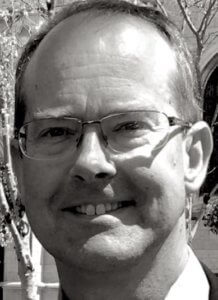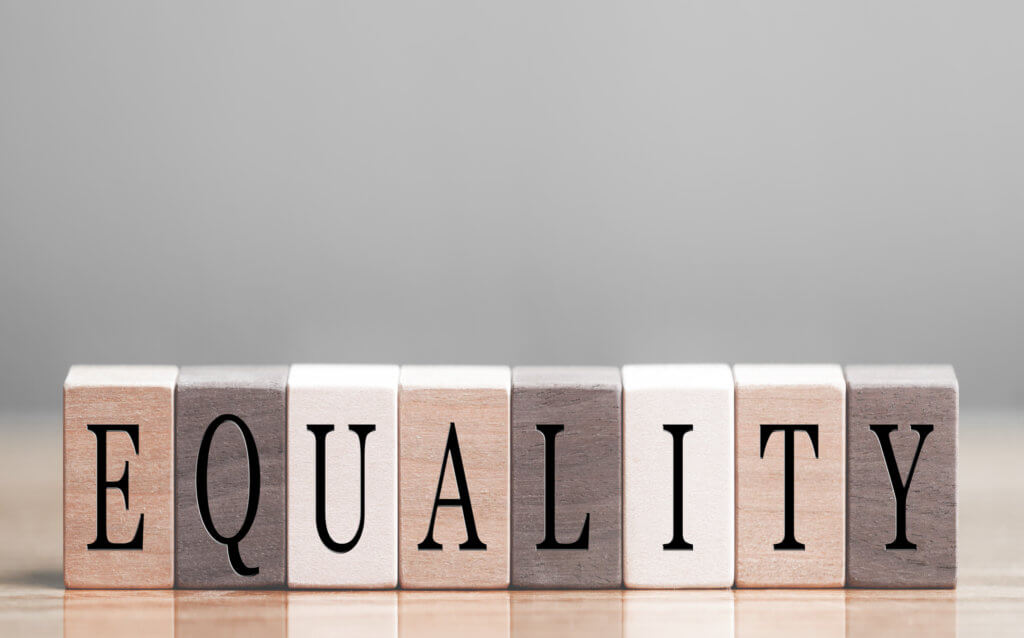Image © [Philip Steury] / Adobe Stock
The American Anglican Council is very grateful to the Rev. Andrew Symes of Anglican Mainstream for his permission to re-publish this article on our website. The original article was published on May 11, 2021 and can be found here on Anglican Mainstream.
Phil Ashey of the ACNA’s American Anglican Council has written with customary clarity about the implications of the Equality Act for Christian life and witness in the US. Behind the (as many see them) apparently reasonable laws to prevent egregious and unjust discrimination are assumptions contained in the Act about belief and worldview. It is not just actions which will now be policed (for example, refusing to bake a cake celebrating a same sex wedding), but words. It seems that to express publicly a view derived from the Bible about binary genders and a heterosexual norm might become “legally discriminatory”. Canon Ashey shows how the definition of “public space” has been widened specifically to include churches.
These new laws are specifically designed to trump long held concepts of freedom of religion and speech. Because of the shift in assumptions by legislators and politicians, for whom it is now axiomatic that a conservative bible-based approach is inherently bigoted and discriminatory, rational defence within the framework of the Act will be very difficult. Hence some more conservative States are passing legislation attempting to ward off the threats to freedom from national laws, which to outside observers further illustrates the reality of a nation at war with itself.
Ashey points out that the Act is a reflection, a symptom of the shift in worldview and morality in the whole Western world which has taken place over many years. Rather than a single battle, won by progressives this time but which could be turned around by similar victories by conservatives in courts or political elections, the progress of the Act towards becoming enshrined in law is, as theologian Andrew Walker says, a “symbol of the de-conversion of the West”.
So, the hope that the removal of the dominant Christian narrative from society would result in a colourful and creative marketplace of ideas in which Christians coexist as free equals in a genuinely ‘liberal’ society, with opportunity for mission like Paul in Athens, has proved hollow. Many Christians have not yet realised this, are only just waking up to it now that freedoms are being taken away, or worse, they have themselves embraced the new woke ideology.
Taking Ashey’s analysis further, we need to ask more about how we have got here, how this is relevant to other Western countries such as the UK, and what should Christians do.
There are some who will claim that this is a matter for US society and has nothing to do with the UK. We do not have the same kind of “culture wars” associated with politics of the left and right; we do not have the same legal system: our “equality” legislation is different. Well, it is true that there is no overarching Act currently before Parliament. But there are several areas in which what is happening in the UK and other Western countries mirrors that of the US, and it would be foolish not to recognise the serious danger to Christian freedom.
First, existing laws to prevent extremism, hate crime, discrimination and public disturbances already exist in the UK; some senior lawyers and politicians are arguing for them to be strengthened (some examples here, here and here).
Secondly, for some time now, a combination of these existing laws and cultural pressure have been used to promote the LGBT agenda and silence opposition. The latest alarming example is the case of Rev Bernard Randall, but these stories of chaplains, schoolteachers and other public sector workers being disciplined and even losing their jobs for expressing what Christians have always believed, are now almost commonplace.
Thirdly, campaigners want the proposed ban on ‘gay conversion therapy’, which has been included in the UK government’s proposed new legislative programme, to essentially outlaw faithful Christian pastoral care and professional therapy to people wanting to explore heteronormative responses to gender dysphoria and same sex attraction, and even put historic biblical teaching about sex and marriage in the category of proscribed speech, in churches and private conversations as well as in ‘public spaces’.
Then, fourthly, the reasons for the underlying change in worldview, or “social imaginary”, as explained clearly by Carl Trueman, are the same in the UK as in the US: a gradual abandonment of Christian underpinnings, replaced not by a benign blank canvas, but by thinking rooted in romanticism, Marxism and “expressive individualism”; thinking determined to suppress orthodox Christianity, which has found its way out of the academy and into popular culture, law and politics.
Lastly, as in the US, the church has been divided in its response to the increasingly hostile secular humanist cultural zeitgeist. Large sections of the church, led by pastors educated in revisionist theology and laity groomed by media in the new ideologies, have embraced ‘woke’ caricatures of Christian faith. But among those holding to orthodox teaching, there are different groupings in terms of attitudes:
Affirm. These are those who believe in the authority of Scripture and the centrality of the substitutionary atonement, but whose instinct is to be positive towards the cultural changes. It may be that they align with ‘progressive’ thinking, see the main problems we face as racial and environmental, and that issues of sexual morality, ‘life’ issues and religious freedom are only concerns for the political right. Or it may be that their commitment to mission makes them think that we must have a posture of apology for homophobia, racism etc and be seen to be on the side of social justice, i.e. show that we are in support of much of the world’s agenda before we can gain a hearing for our message about Christ.
Ignore. This takes the view that if the world is hostile towards Christians, we shouldn’t be surprised – as 1 Peter says, we are aliens in the world, “just passin’ through”; but God is sovereign, and we should focus on preaching the gospel rather than getting involved in cultural analysis or political action. “The Gospel” means salvation through the cross for heaven; the wonderful teaching about our creation as human beings and the threats to this teaching by secular thinking are ignored. This view tends to make a sacred/secular divide – our focus should be the church, not the world.
Resist. It seems that there are two main routes here:
1) National political action.
See the solution in strong men at the head of government, who will motivate a rising up against political correctness and protect the freedom to promote Christian belief and ethics in the public space.
2) Local counter-cultural empowerment.
Strengthen what remains by intentional catechesis, worship, prayer, and fellowship, as articulated most clearly by Rod Dreher’s Benedict Option and Live not by Lies; develop closer ties with the Global South to learn from those already on the margins; unmask the false teaching and hostile spiritual power of secularism/sexual revolution/cultural Marxism; prepare for the future, more underground church, with implications for education and careers.
Growing numbers are concluding that Resist option 2 is the only biblically-faithful, achievable and sustainable route to take for orthodox believers in the West.

The Rev. Andrew Symes is a writer and commentator for Anglican news around the world and is the Director of Anglican Mainstream, an Orthodox Anglican ministry in the UK.


